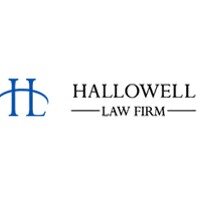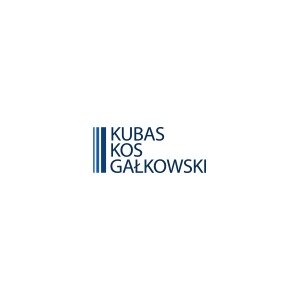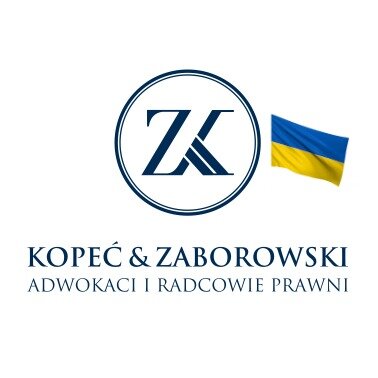Best Corporate Governance Lawyers in Warsaw
Share your needs with us, get contacted by law firms.
Free. Takes 2 min.
List of the best lawyers in Warsaw, Poland
About Corporate Governance Law in Warsaw, Poland
Corporate governance refers to the system of rules, practices, and processes by which companies are directed and controlled. In Warsaw and across Poland, corporate governance is shaped by national legislation, European Union directives, and best-practice codes. The aim is to ensure a transparent, fair, and accountable framework for companies, which is particularly important for publicly traded companies and large enterprises. Corporate governance in Poland continues to evolve, encouraging companies to adopt higher standards of responsibility and transparency, thereby building trust with investors, customers, and the wider community.
Why You May Need a Lawyer
There are several situations where individuals and businesses may require legal assistance regarding corporate governance in Warsaw. Common scenarios include:
- Starting or reorganizing a company and needing advice on board structure or compliance with regulations.
- Dealing with shareholder disputes, conflicts of interest, or breaches of director duties.
- Navigating complex rules for listed companies, including disclosure obligations and compliance with Warsaw Stock Exchange requirements.
- Ensuring proper drafting and amendment of articles of association, bylaws, or corporate policies.
- Addressing corporate fraud, breaches of fiduciary duties, or management misconduct.
- Responding to regulatory investigations by bodies such as the Polish Financial Supervision Authority (KNF).
- Advising on mergers, acquisitions, or changes in company control involving governance issues.
Local Laws Overview
The primary legal framework for corporate governance in Warsaw, Poland includes:
- Polish Commercial Companies Code - This is the main set of rules regulating company formation, management, role of shareholders, corporate bodies, and supervision.
- Corporate Governance Best Practice for WSE Listed Companies - The Warsaw Stock Exchange has its own set of soft rules and recommendations that listed companies are expected to comply with or explain deviations from (the comply or explain principle).
- Polish Financial Supervision Authority (KNF) Regulations - The KNF oversees financial market participants, including enforcing certain governance rules, especially in financial institutions.
- EU Directives - Many aspects of Polish corporate governance are influenced by European Union directives, particularly those on shareholders' rights, transparency, and market abuse.
Key elements that local laws emphasize include the composition and roles of boards, transparency and disclosure requirements, rules for shareholder meetings and voting, protection of minority shareholders, and handling conflicts of interest.
Frequently Asked Questions
What is the role of the supervisory board in Polish companies?
In many Polish companies, especially joint-stock companies, the supervisory board oversees the management board’s activities and ensures the company’s operations comply with laws and internal regulations. The supervisory board does not manage day-to-day affairs but has significant control over major decisions and oversight responsibilities.
Are there mandatory corporate governance codes in Poland?
While the Polish Commercial Companies Code is binding, the Warsaw Stock Exchange's Corporate Governance Best Practice codes are soft law and apply to listed companies under the comply or explain principle. Non-listed companies may follow these recommendations voluntarily.
How are directors’ duties regulated in Poland?
The duties and responsibilities of company directors are set out in the Commercial Companies Code. Directors must act in the best interests of the company, exercise due care, and avoid conflicts of interest. Breaches can result in civil or even criminal liability.
What rights do minority shareholders have?
Minority shareholders in Poland have several rights, including the right to information, to call or request a general meeting, to challenge resolutions, and, in some cases, to demand the appointment of an auditor to examine specific company matters.
How are conflicts of interest handled under Polish law?
Directors and supervisory board members are obliged to disclose any conflicts of interest and to refrain from participating in related votes or decisions. Failing to do so may result in liability for damages to the company.
Are there gender diversity requirements for company boards in Poland?
Currently, there are no binding statutory requirements for gender diversity on boards in Poland. However, some voluntary governance codes and market expectations encourage diversity and inclusion at the board level.
How often must shareholder meetings be held?
Annual general meetings must be held at least once a year, typically within six months of the end of the financial year. Extraordinary meetings can be convened as needed by the management board, the supervisory board, or shareholders under certain conditions.
What are the main disclosure obligations for listed companies?
Listed companies must regularly disclose periodic financial reports, significant events that may affect share prices, and information about changes in management or shareholdings, in accordance with WSE rules and KNF regulations.
How are breaches of corporate governance addressed by regulators?
The Polish Financial Supervision Authority (KNF) can investigate and sanction companies and individuals for breaches of applicable laws and corporate governance rules, including imposing fines, suspensions, or recommending criminal prosecution in serious cases.
Can foreign investors participate in corporate governance?
Yes, Poland does not generally restrict foreign participation in company ownership or board membership, though some sector-specific limitations may apply. Foreign investors enjoy the same corporate governance rights and obligations as domestic ones.
Additional Resources
- Polish Financial Supervision Authority (KNF) - Supervises the capital market and enforces corporate governance regulations, especially for financial institutions.
- Warsaw Stock Exchange (WSE) - Publishes the Corporate Governance Best Practice for listed companies and other regulatory guidance.
- Ministry of Justice - Provides information and resources on the Polish Commercial Companies Code and company law procedures.
- Polish Chamber of Commerce - Offers educational resources, workshops, and information for businesses on corporate governance issues.
- Law firms and legal aid centers in Warsaw - Many provide free initial consultations or informative materials on corporate governance topics.
Next Steps
If you require legal assistance in corporate governance in Warsaw, Poland, consider the following steps:
- Identify your specific issue or concern, such as board disputes, changes in company structure, or compliance questions.
- Gather all relevant company documents and correspondence related to your query.
- Consult with a qualified corporate lawyer experienced in Polish business law and corporate governance.
- Prepare a list of questions or concerns to discuss during your consultation.
- Follow your lawyer's advice closely and ensure all corporate decisions are properly documented and compliant with applicable laws.
- Consider staying informed through reputable business organizations and continuing legal education if you are a company officer or board member.
Legal advice tailored to your specific needs is essential for ensuring compliance and protecting your rights and interests in Poland's complex corporate environment.
Lawzana helps you find the best lawyers and law firms in Warsaw through a curated and pre-screened list of qualified legal professionals. Our platform offers rankings and detailed profiles of attorneys and law firms, allowing you to compare based on practice areas, including Corporate Governance, experience, and client feedback.
Each profile includes a description of the firm's areas of practice, client reviews, team members and partners, year of establishment, spoken languages, office locations, contact information, social media presence, and any published articles or resources. Most firms on our platform speak English and are experienced in both local and international legal matters.
Get a quote from top-rated law firms in Warsaw, Poland — quickly, securely, and without unnecessary hassle.
Disclaimer:
The information provided on this page is for general informational purposes only and does not constitute legal advice. While we strive to ensure the accuracy and relevance of the content, legal information may change over time, and interpretations of the law can vary. You should always consult with a qualified legal professional for advice specific to your situation.
We disclaim all liability for actions taken or not taken based on the content of this page. If you believe any information is incorrect or outdated, please contact us, and we will review and update it where appropriate.

















